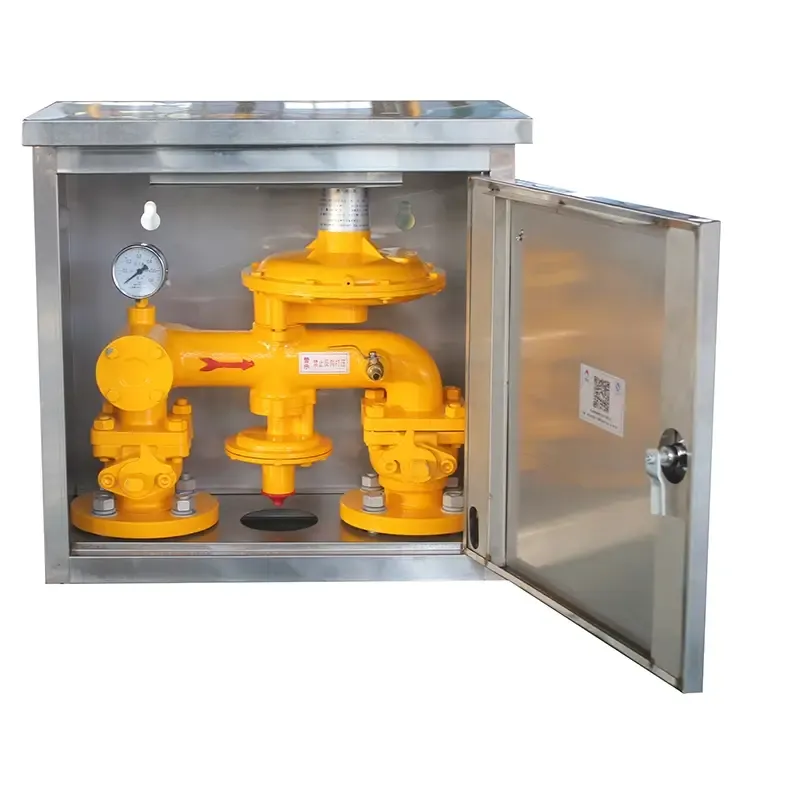
Nov . 06, 2024 01:26
Back to list
Understanding the Function and Importance of Shut-Off Valves in Fluid Systems
The Importance of Shut-Off Valves in Modern Engineering
Shut-off valves are crucial components in various industries, playing a vital role in regulating the flow of liquids and gases. They are designed to either completely stop or allow the passage of fluid, making them essential in applications ranging from plumbing systems in households to complex industrial processes. Understanding the significance, types, and applications of shut-off valves helps in appreciating their role in modern engineering.
Definition and Functionality
A shut-off valve is defined as a valve that is used to stop the flow of a fluid completely. They can be operated manually or automatically, and their primary function is to isolate sections of piping to prevent the flow of fluid when necessary. This functionality is critical in emergencies or during maintenance work, allowing for safe operations without the risk of leaks or unwanted fluid discharge.
Types of Shut-Off Valves
There are several types of shut-off valves, each designed for specific applications and conditions.
1. Gate Valves These are used where a straight-line flow of fluid and minimum pressure drop are desired. They are typically fully opened or closed and cannot be used for throttling purposes. Gate valves are common in water supply systems and industrial applications.
2. Ball Valves Known for their quick operation, ball valves can be opened or closed with just a quarter turn. They offer a tight seal and are excellent for both low and high-pressure applications, including gas and oil pipelines.
3. Butterfly Valves These valves contain a disc that rotates to allow or stop flow, making them ideal for large volumes of liquids and gases. They are lightweight, compact, and widely used in water distribution and wastewater treatment.
4. Globe Valves Offering good throttling capabilities, globe valves are typically used in applications that require flow regulation. They have a higher pressure drop compared to gate or ball valves and are often utilized in heating and cooling systems.
5. Check Valves Though not strictly a shut-off valve, check valves play a key role in preventing backflow in pipelines. They ensure that fluid flows in one direction, which is crucial in maintaining system integrity.
shut-off valve

Applications of Shut-Off Valves
Shut-off valves have a wide range of applications across different sectors
- Residential Plumbing Systems In homes, shut-off valves are installed on water supply lines, allowing homeowners to isolate piped water for repairs or emergencies.
- Oil and Gas Industry Shut-off valves are critical in upstream, midstream, and downstream processes, controlling the flow of petroleum and natural gas. They ensure safety and compliance with regulatory standards.
- Chemical Processing In chemical plants, shut-off valves are essential for managing the flow of hazardous substances, providing a necessary safeguard against leaks and spills.
- Food and Beverage Industry Shut-off valves are used in processing systems to control the flow of liquids and gases, ensuring hygiene and safety in food production.
- Fire Protection Systems Shut-off valves are integral in fire sprinkler systems, allowing for the quick isolation of water supply lines in case of a fire emergency.
Safety and Maintenance
The proper functioning of shut-off valves is paramount for safety in any system. Regular maintenance and inspections are necessary to ensure that these valves operate effectively. Factors such as corrosion, wear and tear, and sediment buildup can impede their functionality, leading to potential hazards. Engineers and technicians should conduct routine checks, replacing any faulty valves to ensure that systems remain operational and safe.
Conclusion
Shut-off valves are indispensable in the design and functioning of fluid systems across various sectors. Their ability to control, isolate, and regulate flow makes them crucial for safety, efficiency, and functionality. As industries continue to evolve, the role of shut-off valves will only become more significant, highlighting the need for advancements in their design and application. Understanding their importance not only enhances system performance but also contributes to overall safety and operational integrity in engineering practices.
Latest news
-
Safety Valve Spring-Loaded Design Overpressure ProtectionNewsJul.25,2025
-
Precision Voltage Regulator AC5 Accuracy Grade PerformanceNewsJul.25,2025
-
Natural Gas Pressure Regulating Skid Industrial Pipeline ApplicationsNewsJul.25,2025
-
Natural Gas Filter Stainless Steel Mesh Element DesignNewsJul.25,2025
-
Gas Pressure Regulator Valve Direct-Acting Spring-Loaded DesignNewsJul.25,2025
-
Decompression Equipment Multi-Stage Heat Exchange System DesignNewsJul.25,2025

